 FORT MILL, South Carolina — Domtar’s Calhoun, Tennessee site has begun installation of a new, world-class high-speed tissue converting line designed to increase operational output, enhance efficiency, and support long-term scalability. The advanced equipment will help better align the mill’s tissue production capacity with its converting capabilities, strengthening overall operational performance to better service the US tissue market. To complement the new line, the mill is also expanding its existing warehouse space for parent tissue rolls. This additional capacity will support improved inventory management and provide greater operational flexibility. “This investment underscores the Company’s continued commitment to operational excellence and future growth in the US tissue market,” said Tony Sanders, vice president of sales and marketing. The upgraded converting technology will elevate product quality while the expanded warehousing will ensure the infrastructure needed to support future business and production needs.
FORT MILL, South Carolina — Domtar’s Calhoun, Tennessee site has begun installation of a new, world-class high-speed tissue converting line designed to increase operational output, enhance efficiency, and support long-term scalability. The advanced equipment will help better align the mill’s tissue production capacity with its converting capabilities, strengthening overall operational performance to better service the US tissue market. To complement the new line, the mill is also expanding its existing warehouse space for parent tissue rolls. This additional capacity will support improved inventory management and provide greater operational flexibility. “This investment underscores the Company’s continued commitment to operational excellence and future growth in the US tissue market,” said Tony Sanders, vice president of sales and marketing. The upgraded converting technology will elevate product quality while the expanded warehousing will ensure the infrastructure needed to support future business and production needs.


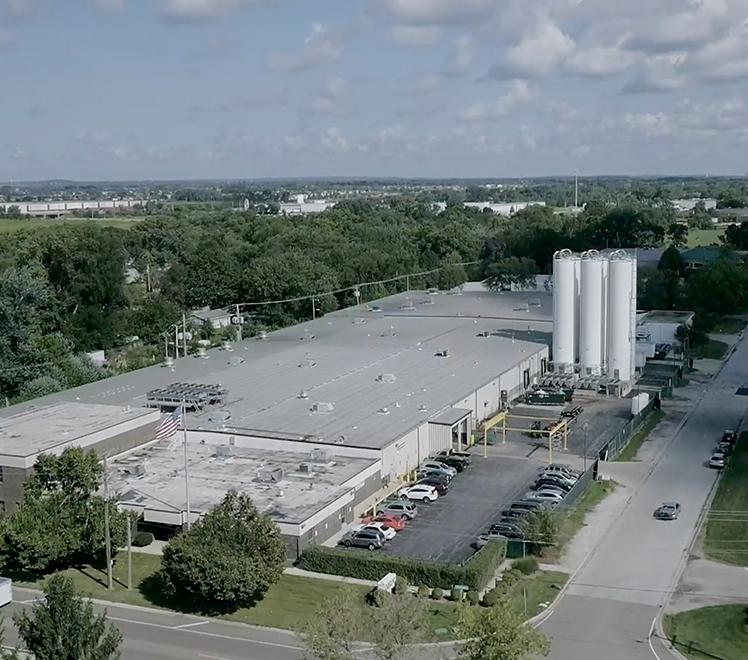
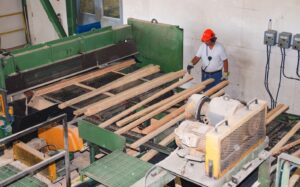 Duties on Canadian imports are driving up domestic sales at some Maine lumber companies. …Protection from historically lower Canadian lumber prices has given Pleasant River Lumber the confidence to add an additional manufacturing shift in Enfield, according to co-owner Jason Brochu. Photo by Katherine Emery. …Historically Canadian companies have both outbid them for timber harvested in Maine and undercut American lumber prices when they export the finished lumber product back across the border. …An industry analyst and two other mill leaders said that inflation and a sputtering housing market make it unclear whether the tariffs will have a positive or negative effect on business in the long run. The effects of the tariffs will also vary based on the different products sawmills make. …Sawmills rely on certainty, said Alden Robbins, of Robbins Lumber, and neither the markets nor foreign trade relationships have been stable recently.
Duties on Canadian imports are driving up domestic sales at some Maine lumber companies. …Protection from historically lower Canadian lumber prices has given Pleasant River Lumber the confidence to add an additional manufacturing shift in Enfield, according to co-owner Jason Brochu. Photo by Katherine Emery. …Historically Canadian companies have both outbid them for timber harvested in Maine and undercut American lumber prices when they export the finished lumber product back across the border. …An industry analyst and two other mill leaders said that inflation and a sputtering housing market make it unclear whether the tariffs will have a positive or negative effect on business in the long run. The effects of the tariffs will also vary based on the different products sawmills make. …Sawmills rely on certainty, said Alden Robbins, of Robbins Lumber, and neither the markets nor foreign trade relationships have been stable recently.






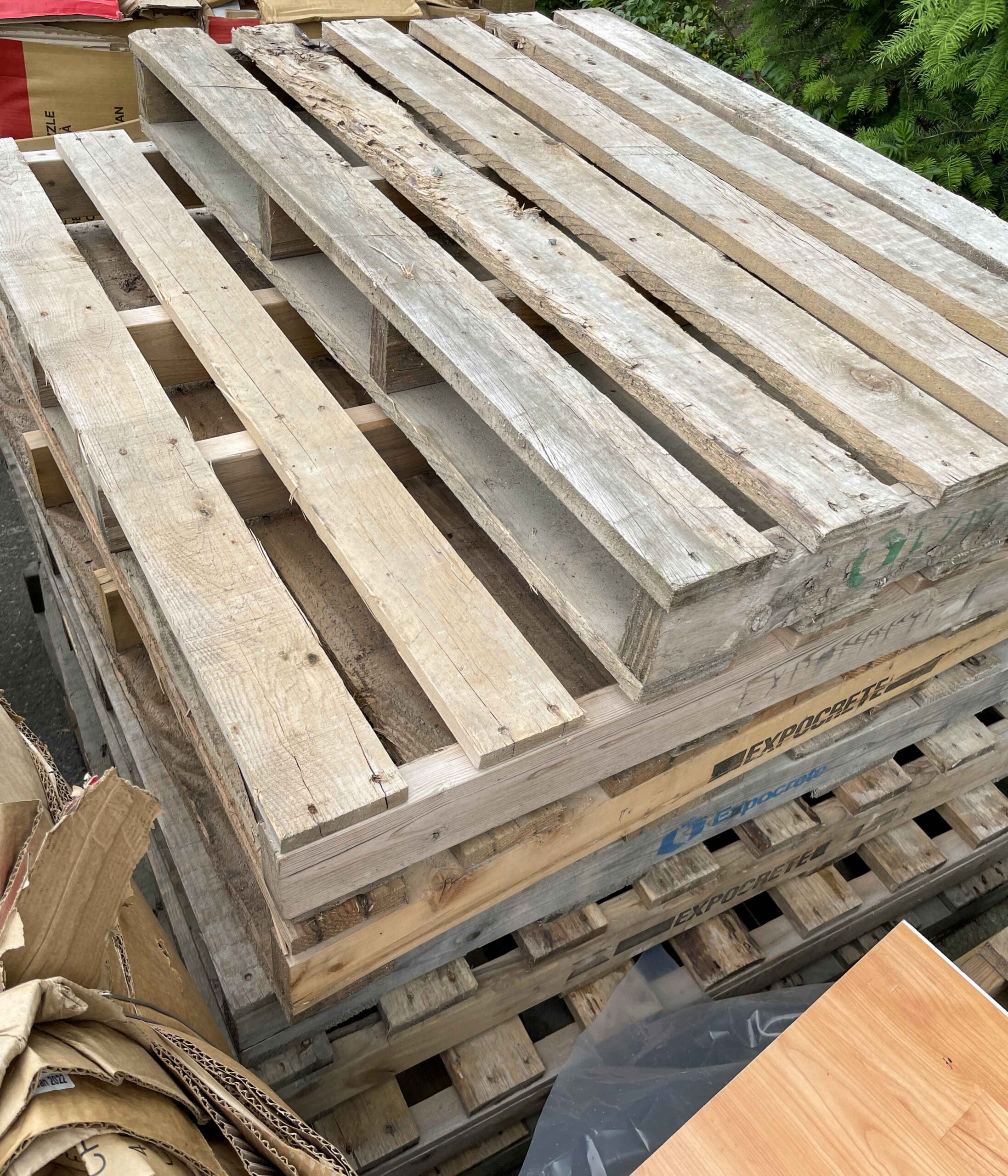 ALEXANDRIA, Va.
ALEXANDRIA, Va.


 Southern Pine lumber exports (treated and untreated) are almost equal to 2024 year to date through October 2025 at 488 MMBF, according to October 2025 data from the USDA’s Foreign Agriculture Services’ Global Agricultural Trade System. October 2025’s 60 MMBF of exports were up 47% over October 2024 and up 33% compared to September 2025. When looking at the report by dollar value, Southern Pine exports are up 4% YTD ($190 million) compared to 2024. Meanwhile, the October value of $25 million is the highest mark since June 2022, when the value hit $29 million. Mexico leads the way YTD 2025 at $56 million, followed by the Dominican Republic at $39 million, and India at $18 million. Treated lumber exports, meanwhile, are down 4% through the first 10 months of the year compared to 2024. The Leeward-Windward Islands market leads the way through October at $18 million, followed by Jamaica at $16 million, and Belize at $10 million. Softwood lumber imports are running 8% behind 2024 levels.
Southern Pine lumber exports (treated and untreated) are almost equal to 2024 year to date through October 2025 at 488 MMBF, according to October 2025 data from the USDA’s Foreign Agriculture Services’ Global Agricultural Trade System. October 2025’s 60 MMBF of exports were up 47% over October 2024 and up 33% compared to September 2025. When looking at the report by dollar value, Southern Pine exports are up 4% YTD ($190 million) compared to 2024. Meanwhile, the October value of $25 million is the highest mark since June 2022, when the value hit $29 million. Mexico leads the way YTD 2025 at $56 million, followed by the Dominican Republic at $39 million, and India at $18 million. Treated lumber exports, meanwhile, are down 4% through the first 10 months of the year compared to 2024. The Leeward-Windward Islands market leads the way through October at $18 million, followed by Jamaica at $16 million, and Belize at $10 million. Softwood lumber imports are running 8% behind 2024 levels.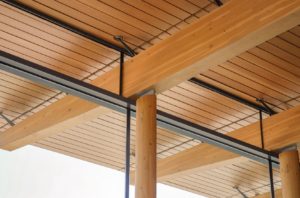 LANSING, Michigan – A state program to aid mass timber projects in Michigan has been extended for the Upper Peninsula after the region submitted no applications for funding in 2026. …A supplemental call for proposals makes available $50,000 through March 2. Those awards will be announced March 16. The awardees are:
LANSING, Michigan – A state program to aid mass timber projects in Michigan has been extended for the Upper Peninsula after the region submitted no applications for funding in 2026. …A supplemental call for proposals makes available $50,000 through March 2. Those awards will be announced March 16. The awardees are: CLEVELAND, Ohio — A state panel this week extended its offer to help finance construction of a new 129-room boutique hotel in Cleveland’s Ohio City neighborhood. While that doesn’t guarantee the hotel will move forward, the developer leading the project said construction can’t start without the state’s financing. The board… offered until Jan. 31, 2027 are $35 million worth of state bonds for the roughly $55 million project that would build a Marriott Tribute Portfolio boutique hotel. …The air quality facilities noted in the resolution include the seven-story building’s proposed use of mass-timber in its construction. …The presence of wood-timber construction above a first-floor reinforced concrete deck is noted in this axonometric view of the proposed Ohio City Hotel (DLR). The use of mass timber instead of reinforced concrete can save up to 40% in ongoing heating and cooling emissions for a building’s user as well as reduced emissions, according to Dan Whalen, at Places Development.
CLEVELAND, Ohio — A state panel this week extended its offer to help finance construction of a new 129-room boutique hotel in Cleveland’s Ohio City neighborhood. While that doesn’t guarantee the hotel will move forward, the developer leading the project said construction can’t start without the state’s financing. The board… offered until Jan. 31, 2027 are $35 million worth of state bonds for the roughly $55 million project that would build a Marriott Tribute Portfolio boutique hotel. …The air quality facilities noted in the resolution include the seven-story building’s proposed use of mass-timber in its construction. …The presence of wood-timber construction above a first-floor reinforced concrete deck is noted in this axonometric view of the proposed Ohio City Hotel (DLR). The use of mass timber instead of reinforced concrete can save up to 40% in ongoing heating and cooling emissions for a building’s user as well as reduced emissions, according to Dan Whalen, at Places Development. 
 ST. LOUIS — What is the life cycle of a building? Each year, in the United States, new home construction accounts for 50 million tons of carbon emissions. The majority stem from harvesting, manufacturing and transporting building materials — from lumber and masonry to glass and tile to roofing and mechanical systems. But what happens at the end of the cycle? When a building is no longer inhabitable or needed, what happens to all the energy invested in those materials? “It’s demolished,” Hongxi Yin said. “It goes to the landfill.” Yin, an expert on sustainable construction, is the InCEES professor in advanced building systems and architectural design in the Sam Fox School of Design & Visual Arts at Washington University in St. Louis. Over the last decade, he has led a series of research studios exploring ways to improve building efficiency, supply chains and construction processes.
ST. LOUIS — What is the life cycle of a building? Each year, in the United States, new home construction accounts for 50 million tons of carbon emissions. The majority stem from harvesting, manufacturing and transporting building materials — from lumber and masonry to glass and tile to roofing and mechanical systems. But what happens at the end of the cycle? When a building is no longer inhabitable or needed, what happens to all the energy invested in those materials? “It’s demolished,” Hongxi Yin said. “It goes to the landfill.” Yin, an expert on sustainable construction, is the InCEES professor in advanced building systems and architectural design in the Sam Fox School of Design & Visual Arts at Washington University in St. Louis. Over the last decade, he has led a series of research studios exploring ways to improve building efficiency, supply chains and construction processes. 
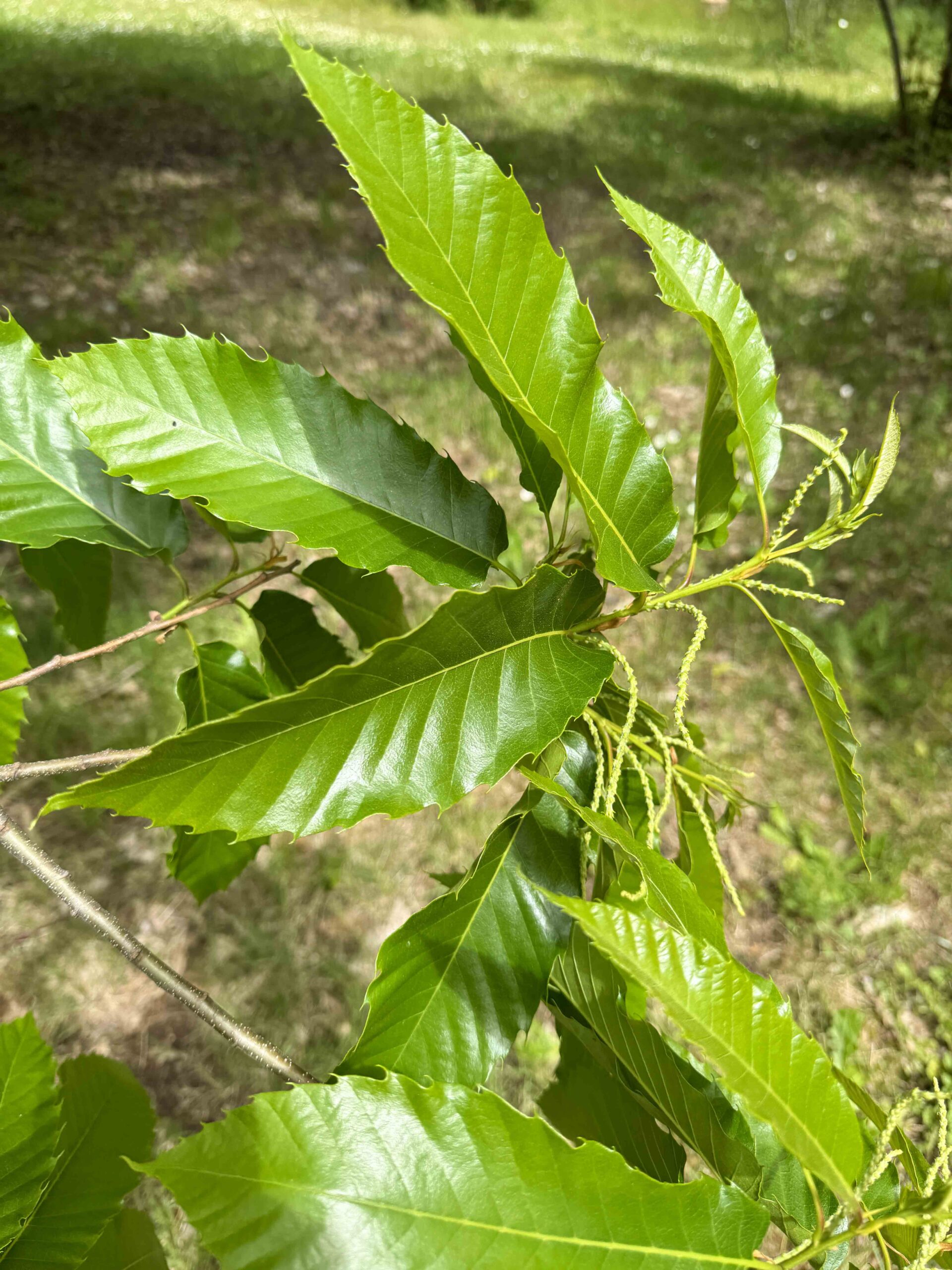 CHARLOTTESVILLE, Va. — Virginia’s forestry leaders are working to address mounting pressures that could undermine the long-term viability of forest management throughout the state. The newly formed Virginia Wood Council convened its inaugural meeting in September, bringing together representatives from various industry groups and government agencies. Participants included the Virginia Farm Bureau, Virginia Forestry Association, Virginia Loggers Association, Virginia Forest Products Association, Virginia Department of Agriculture and Consumer Services, the Virginia Economic Development Partnership, along with loggers, mill operators and manufacturers. “The plan is to understand all the emerging forest product industry issues, and figure out what’s causing them,” said Sabina Dhungana, utilization and marketing program manager for the Virginia Department of Forestry. …The industry operates through collaboration between forest property owners, forestry professionals, loggers, timber purchasers and other specialists who work to maintain a consistent supply of renewable timber resources used for lumber production, paper manufacturing, energy generation and other purposes.
CHARLOTTESVILLE, Va. — Virginia’s forestry leaders are working to address mounting pressures that could undermine the long-term viability of forest management throughout the state. The newly formed Virginia Wood Council convened its inaugural meeting in September, bringing together representatives from various industry groups and government agencies. Participants included the Virginia Farm Bureau, Virginia Forestry Association, Virginia Loggers Association, Virginia Forest Products Association, Virginia Department of Agriculture and Consumer Services, the Virginia Economic Development Partnership, along with loggers, mill operators and manufacturers. “The plan is to understand all the emerging forest product industry issues, and figure out what’s causing them,” said Sabina Dhungana, utilization and marketing program manager for the Virginia Department of Forestry. …The industry operates through collaboration between forest property owners, forestry professionals, loggers, timber purchasers and other specialists who work to maintain a consistent supply of renewable timber resources used for lumber production, paper manufacturing, energy generation and other purposes.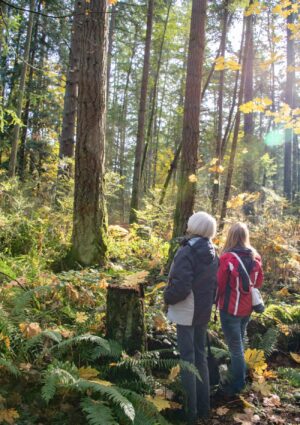 NEW YORK — BTG Pactual Timberland Investment Group has acquired approximately 107,000 acres of sustainably managed timberlands in Central Virginia from the Weyerhaeuser Company. The acquisition represents one of the largest recent timberland transactions in Virginia, significantly expanding BTG Pactual TIG’s footprint in the region and bringing the firm’s total US portfolio to approximately 1.6 million acres under management. The property is Sustainable Forestry Initiative (SFI) certified, consisting primarily of loblolly pine, and will be well-integrated with BTG Pactual TIG’s existing regional operations. …The acquisition also enables BTG Pactual TIG to further expand conservation efforts in the region through its long-term collaboration with NatureVest, The Nature Conservancy’s (TNC’s) in-house impact investing and nature finance team. A preliminary assessment of the asset conducted by TNC found that 25% of the property falls within areas of high ecological and biodiversity value.
NEW YORK — BTG Pactual Timberland Investment Group has acquired approximately 107,000 acres of sustainably managed timberlands in Central Virginia from the Weyerhaeuser Company. The acquisition represents one of the largest recent timberland transactions in Virginia, significantly expanding BTG Pactual TIG’s footprint in the region and bringing the firm’s total US portfolio to approximately 1.6 million acres under management. The property is Sustainable Forestry Initiative (SFI) certified, consisting primarily of loblolly pine, and will be well-integrated with BTG Pactual TIG’s existing regional operations. …The acquisition also enables BTG Pactual TIG to further expand conservation efforts in the region through its long-term collaboration with NatureVest, The Nature Conservancy’s (TNC’s) in-house impact investing and nature finance team. A preliminary assessment of the asset conducted by TNC found that 25% of the property falls within areas of high ecological and biodiversity value.

 STARKVILLE, Miss. — Carbon dioxide is the most commonly produced greenhouse gas, the substances that trap heat in the atmosphere keeping the planet warm enough for life. Carbon is stored in high amounts in timber, of which Mississippi has an abundance. The state ranks in the top 10 nationally in timber production, with close to 20 million acres of timberland. The U.S. Geological Survey says that carbon sequestration is the process of capturing and storing atmospheric carbon dioxide. Removing carbon dioxide from the atmosphere reduces the potential for global climate change. Since timber stores carbon efficiently, a tremendous amount of the greenhouse gas carbon dioxide is stored in Mississippi’s forests. This makes timber a valuable resource in efforts to limit the amount of carbon available as a greenhouse gas. Carbon credits and the carbon offset market have made an impact on Mississippi’s economy to a degree for about 20 years.
STARKVILLE, Miss. — Carbon dioxide is the most commonly produced greenhouse gas, the substances that trap heat in the atmosphere keeping the planet warm enough for life. Carbon is stored in high amounts in timber, of which Mississippi has an abundance. The state ranks in the top 10 nationally in timber production, with close to 20 million acres of timberland. The U.S. Geological Survey says that carbon sequestration is the process of capturing and storing atmospheric carbon dioxide. Removing carbon dioxide from the atmosphere reduces the potential for global climate change. Since timber stores carbon efficiently, a tremendous amount of the greenhouse gas carbon dioxide is stored in Mississippi’s forests. This makes timber a valuable resource in efforts to limit the amount of carbon available as a greenhouse gas. Carbon credits and the carbon offset market have made an impact on Mississippi’s economy to a degree for about 20 years.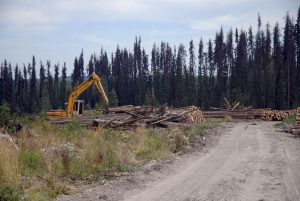 PITTSBURG, New Hampshire — The state has reached a deal on the management of the Connecticut Lakes Headwaters Working Forest, a 146,000 acre property constituting 3% of New Hampshire’s forests, according to Gov. Kelly Ayotte. The forest is privately owned but is under a conservation easement, which means the state has oversight regarding how the land is managed and can ensure it remains a working timberland. Since the land was purchased in 2022 by an out-of-state carbon offset company, Aurora Sustainable Lands, local loggers have raised concerns about reduced timber harvesting on the property. As a carbon-offset company, Aurora curbed logging in order to sell the carbon they stored. …In the plan agreed upon last month, Aurora will increase the average annual timber harvest. …“The Connecticut Lakes Headwaters Working Forest is critical to recreation, tourism and the timber industry in our North Country,” Ayotte said.
PITTSBURG, New Hampshire — The state has reached a deal on the management of the Connecticut Lakes Headwaters Working Forest, a 146,000 acre property constituting 3% of New Hampshire’s forests, according to Gov. Kelly Ayotte. The forest is privately owned but is under a conservation easement, which means the state has oversight regarding how the land is managed and can ensure it remains a working timberland. Since the land was purchased in 2022 by an out-of-state carbon offset company, Aurora Sustainable Lands, local loggers have raised concerns about reduced timber harvesting on the property. As a carbon-offset company, Aurora curbed logging in order to sell the carbon they stored. …In the plan agreed upon last month, Aurora will increase the average annual timber harvest. …“The Connecticut Lakes Headwaters Working Forest is critical to recreation, tourism and the timber industry in our North Country,” Ayotte said.
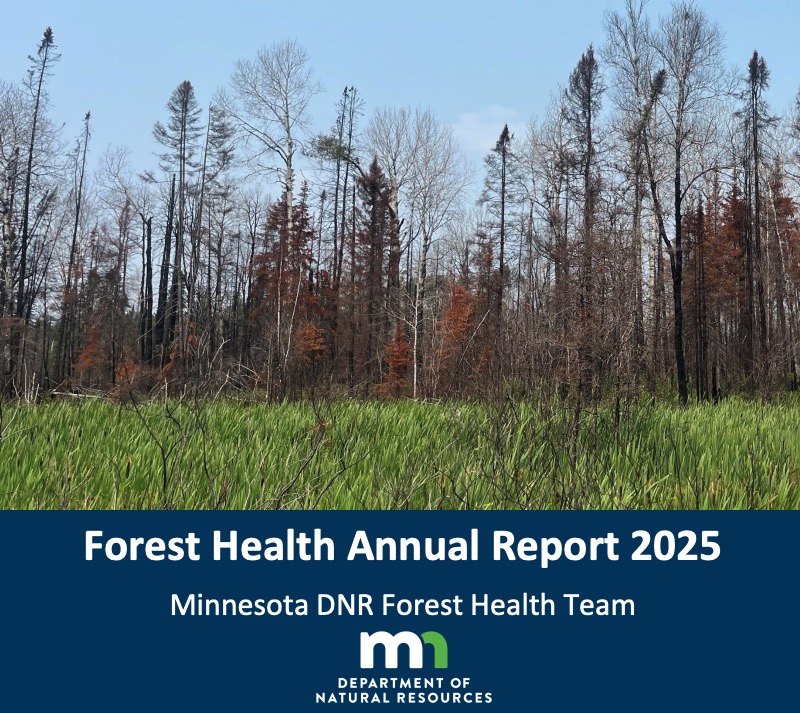 The Minnesota Department of Natural Resources aerially surveyed more than 13.5 million acres last year, checking for forest damage across the state’s forestland. Its findings are included in the recently released 2025 Forest Health Annual Report. Brian Schwingle, forest health program coordinator, said the annual survey and report is important because it tracks trends and reveals what is impacting trees, allowing the managers to make decisions for healthier, more resilient forests. “The two biggest tree health stories in 2025 in Minnesota were the derecho, the big blowdown in Bemidji, and the three big wildfires in northeast Minnesota in May,” he said, noting prior spruce budworm damage helped fuel the fires. In July, a derecho damaged 11,600 acres in and around Bemidji. Derecho, a Spanish word for straight, is a widespread, straight-line windstorm associated with a band of fast-moving thunderstorms. They can leave serious damage in their wake.
The Minnesota Department of Natural Resources aerially surveyed more than 13.5 million acres last year, checking for forest damage across the state’s forestland. Its findings are included in the recently released 2025 Forest Health Annual Report. Brian Schwingle, forest health program coordinator, said the annual survey and report is important because it tracks trends and reveals what is impacting trees, allowing the managers to make decisions for healthier, more resilient forests. “The two biggest tree health stories in 2025 in Minnesota were the derecho, the big blowdown in Bemidji, and the three big wildfires in northeast Minnesota in May,” he said, noting prior spruce budworm damage helped fuel the fires. In July, a derecho damaged 11,600 acres in and around Bemidji. Derecho, a Spanish word for straight, is a widespread, straight-line windstorm associated with a band of fast-moving thunderstorms. They can leave serious damage in their wake.
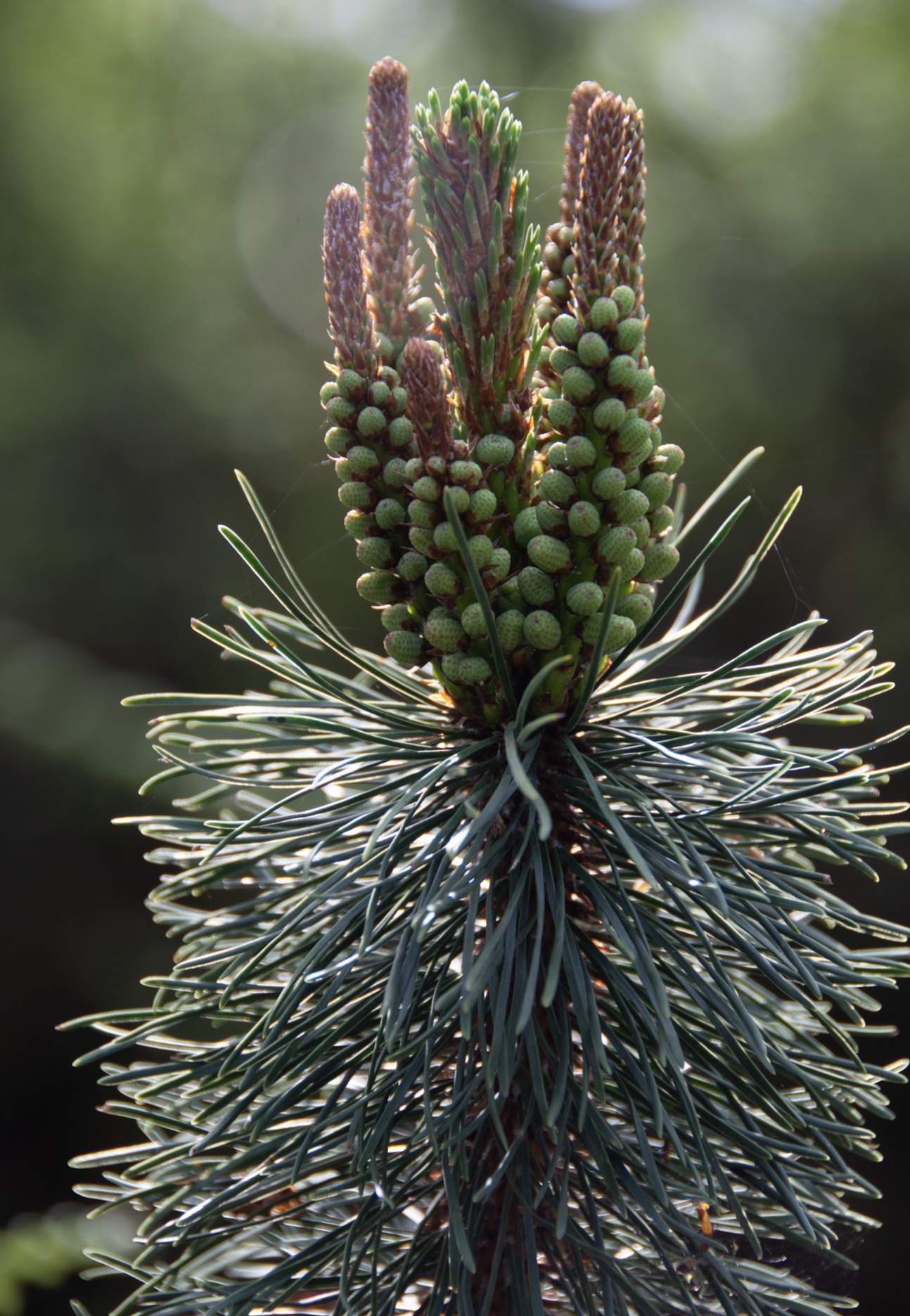 …Timber prices have been low for a long time; they never really recovered from the 2008 housing crash. Nearly a dozen paper mills closed across the South in recent years, and Hurricane Helene tore down trees in much of Georgia and the Carolinas. It’s left many in Georgia, one of the leading states for forestry, with a dilemma: what do you do when your income relies on a forest but nobody wants to buy your trees? A group of researchers and industry leaders thinks paying landowners for carbon storage could help. “We may see a decline in the number of acres that are kept in forests and the quality of the land that is forested,” said David Eady with Georgia Tech’s business school. Losing those trees would shrink the industry and be devastating for the environment. …So Eady and others asked: why not use that carbon storage to keep foresters in business?
…Timber prices have been low for a long time; they never really recovered from the 2008 housing crash. Nearly a dozen paper mills closed across the South in recent years, and Hurricane Helene tore down trees in much of Georgia and the Carolinas. It’s left many in Georgia, one of the leading states for forestry, with a dilemma: what do you do when your income relies on a forest but nobody wants to buy your trees? A group of researchers and industry leaders thinks paying landowners for carbon storage could help. “We may see a decline in the number of acres that are kept in forests and the quality of the land that is forested,” said David Eady with Georgia Tech’s business school. Losing those trees would shrink the industry and be devastating for the environment. …So Eady and others asked: why not use that carbon storage to keep foresters in business?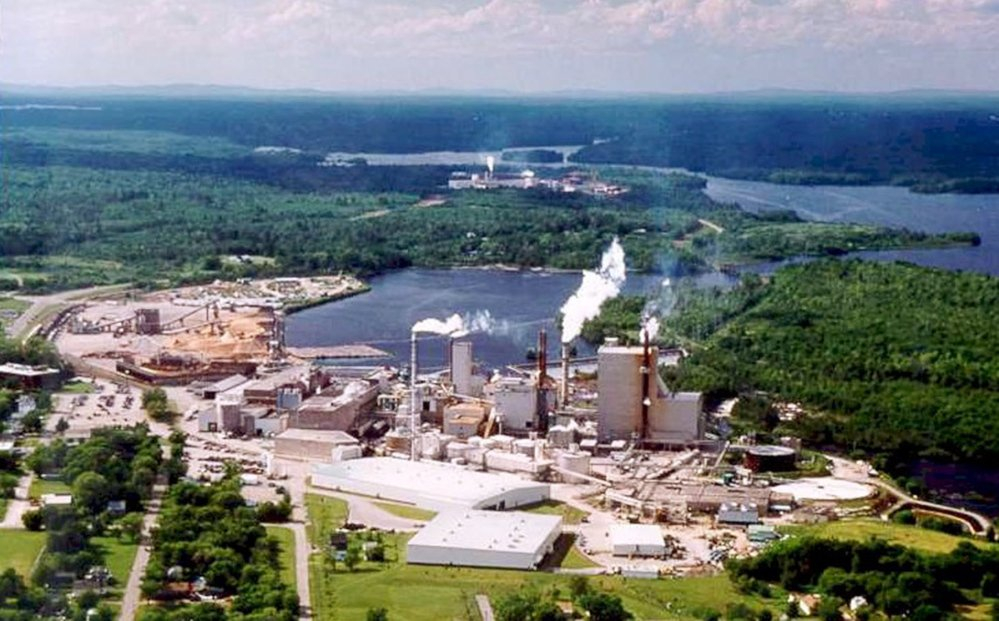
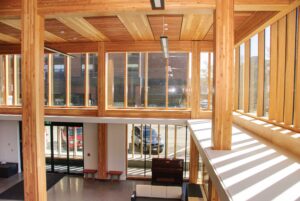 Construction in New York City is one of the most dynamic and demanding industries in the country — but it’s also one of the most dangerous. …That’s why innovation in building materials and methods can have a real impact not only on efficiency and sustainability but also on safety. One such innovation, mass timber, is gaining traction. …Mass timber components are prefabricated in controlled factory settings. This approach greatly reduces the need for tasks like cutting, welding, or mixing concrete on-site — tasks that are commonly associated with jobsite injuries. …Additionally, since large panels arrive ready to install, crews spend less time working at height, which directly reduces the risk of falls — the leading cause of construction fatalities in the U.S., according to OSHA’s fall protection guidelines. …It also means a reduced need for powered hand tools and high-decibel equipment, lowering the risk of accidents related to hand injuries or communication breakdowns.
Construction in New York City is one of the most dynamic and demanding industries in the country — but it’s also one of the most dangerous. …That’s why innovation in building materials and methods can have a real impact not only on efficiency and sustainability but also on safety. One such innovation, mass timber, is gaining traction. …Mass timber components are prefabricated in controlled factory settings. This approach greatly reduces the need for tasks like cutting, welding, or mixing concrete on-site — tasks that are commonly associated with jobsite injuries. …Additionally, since large panels arrive ready to install, crews spend less time working at height, which directly reduces the risk of falls — the leading cause of construction fatalities in the U.S., according to OSHA’s fall protection guidelines. …It also means a reduced need for powered hand tools and high-decibel equipment, lowering the risk of accidents related to hand injuries or communication breakdowns. Warm, dry and windy weather in Oklahoma has fueled multiple wildfires and prompted authorities to urge nearly one-third of the residents of the small city of Woodward to flee. Matt Lehenbauer, director of emergency management for Woodward and its nearly 12,000 inhabitants, said the evacuation recommendation covers roughly 4,000 people. It is voluntary, he said, because Oklahoma prohibits mandatory evacuations. The wildfire in Woodward, about 140 miles northwest of Oklahoma City, is approaching a “worst-case scenario,” Lehenbauer said, but it hasn’t moved into the most populated area of the city. A blaze in Beaver County at the base of the Oklahoma Panhandle, about 217 miles northwest of Oklahoma City, has consumed an estimated 15,000 acres alone, Oklahoma Forestry Services said.
Warm, dry and windy weather in Oklahoma has fueled multiple wildfires and prompted authorities to urge nearly one-third of the residents of the small city of Woodward to flee. Matt Lehenbauer, director of emergency management for Woodward and its nearly 12,000 inhabitants, said the evacuation recommendation covers roughly 4,000 people. It is voluntary, he said, because Oklahoma prohibits mandatory evacuations. The wildfire in Woodward, about 140 miles northwest of Oklahoma City, is approaching a “worst-case scenario,” Lehenbauer said, but it hasn’t moved into the most populated area of the city. A blaze in Beaver County at the base of the Oklahoma Panhandle, about 217 miles northwest of Oklahoma City, has consumed an estimated 15,000 acres alone, Oklahoma Forestry Services said. 